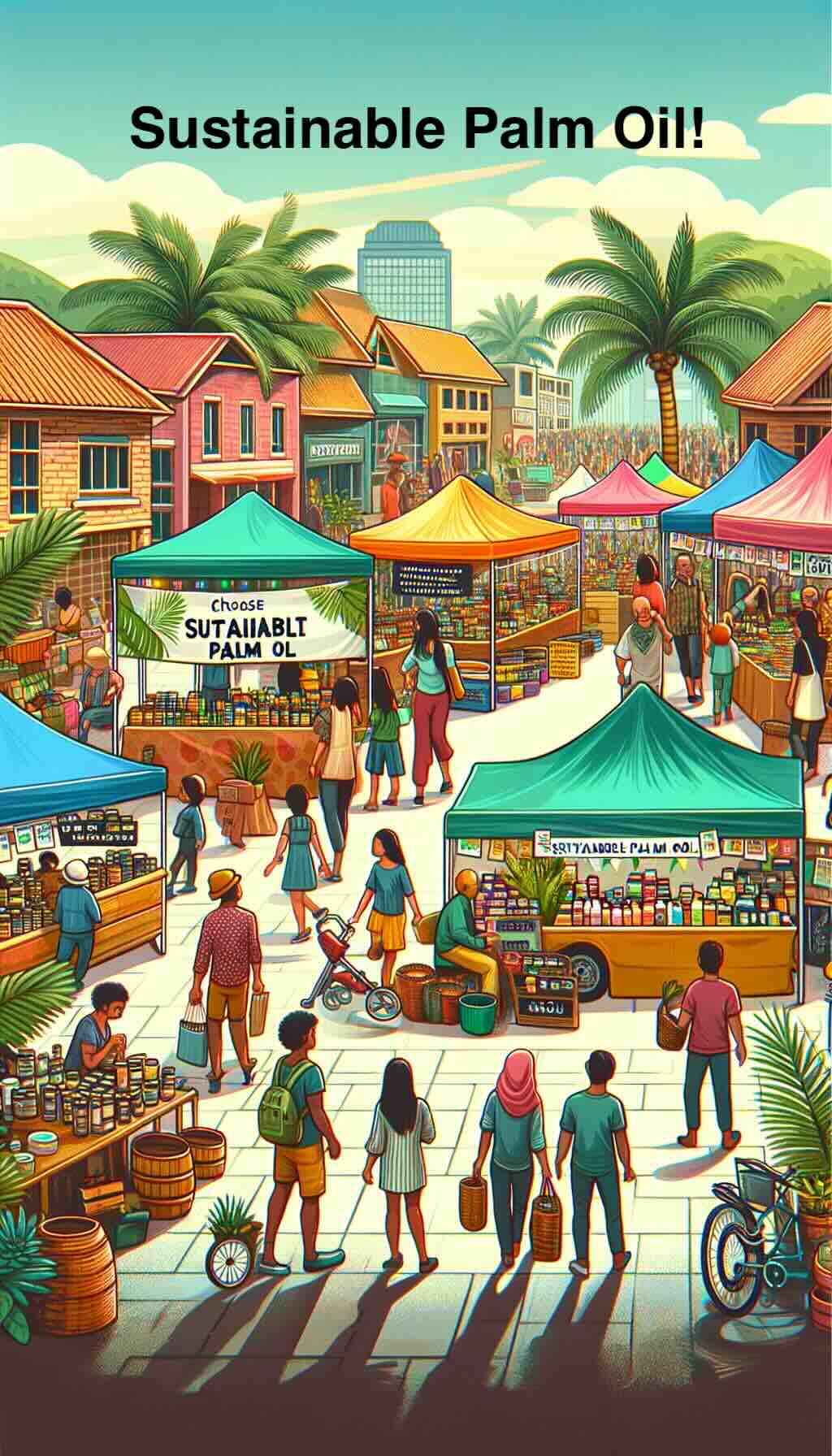
In recent years, the conversation around palm oil has intensified, with a spotlight on its environmental impact and the urgent call for sustainable practices. As the world grapples with deforestation, biodiversity loss, and climate change, the quest for sustainable palm oil production has emerged as a critical environmental imperative. This comprehensive exploration delves into the heart of the palm oil dilemma, unveiling the multifaceted efforts to transform the industry and the challenges that lie ahead.
The Palm Oil Paradox
Palm oil’s ubiquity in our daily lives is undeniable. From the food we eat to the products we use, this versatile vegetable oil has become a staple ingredient. However, its widespread use comes at a significant cost to the environment. The conventional production of palm oil has led to extensive deforestation in tropical regions, notably in Indonesia and Malaysia, contributing to the loss of critical habitats for endangered species, increased greenhouse gas emissions, and displacement of indigenous communities.
The Dawn of Sustainable Initiatives
Amid growing environmental concerns, a global movement towards sustainable palm oil production has gained momentum. Key initiatives include:
The Roundtable on Sustainable Palm Oil (RSPO)
As a leading force in the industry, the RSPO brings together stakeholders from various sectors to develop and implement global standards for sustainable palm oil. By promoting practices that reduce environmental impact and ensure fair treatment of workers and communities, the RSPO aims to transform the sector from within.
Corporate Commitments
Major corporations, recognizing their role in fostering sustainability, have pledged to source palm oil responsibly. Companies like Nestlé and Cargill have published comprehensive reports outlining their commitments to sustainable palm oil, setting ambitious goals to achieve 100% sustainably sourced palm oil within their supply chains.
Research and Innovation
Scientific research and technological advancements play a pivotal role in addressing the environmental challenges of palm oil production. Innovations in agricultural practices, such as improved yield efficiency and the development of disease-resistant oil palm varieties, offer promising pathways to reduce the need for new plantations and protect natural ecosystems.
The Roadblocks to Sustainability
Despite significant progress, the journey towards sustainable palm oil is fraught with challenges. The complexity of supply chains, lack of transparency, and enforcement of sustainability standards remain significant hurdles. Additionally, the economic significance of palm oil to producing countries underscores the need for solutions that balance environmental conservation with socio-economic development.
Engaging Consumers in the Change
Consumer awareness and demand for sustainably produced palm oil can drive industry-wide change. By opting for products certified by the RSPO or other credible sustainability standards, consumers can support the shift towards environmentally friendly practices. Education and advocacy play crucial roles in empowering consumers to make informed choices and advocate for corporate and governmental policies that prioritize sustainability.
Conclusion: A Collective Responsibility
The quest for sustainable palm oil underscores a broader imperative to address our environmental footprint. It is a journey that requires the collective effort of governments, industries, communities, and individuals. Through collaboration, innovation, and steadfast commitment to sustainability, we can forge a future where palm oil production contributes to the health of our planet rather than its detriment.
As we navigate the complexities of sustainable palm oil, let us remain vigilant, proactive, and engaged in the pursuit of solutions that honor our environmental and ethical responsibilities. Together, we can turn the tide towards a more sustainable and equitable world.
Embracing sustainable palm oil is not just an environmental choice; it’s a commitment to a better future. Join the movement, and let’s make a difference, one choice at a time.
10 FAQs About Sustainable Palm Oil
- What is palm oil?
- Palm oil is a vegetable oil derived from the fruit of the oil palm tree, widely used in food products, cosmetics, and as a biofuel.
- Why is palm oil considered unsustainable?
- Traditional palm oil production has led to deforestation, habitat destruction, biodiversity loss, and increased greenhouse gas emissions due to the clearing of vast areas of tropical rainforests.
- What is sustainable palm oil?
- Sustainable palm oil is produced in a way that minimizes environmental impact, conserves biodiversity, and benefits communities without contributing to deforestation or habitat degradation.
- How can I identify products with sustainable palm oil?
- Look for certifications like the Roundtable on Sustainable Palm Oil (RSPO) label on product packaging, indicating the palm oil used meets specific sustainability standards.
- Can palm oil be produced without harming the environment?
- Yes, through sustainable practices such as agroforestry, improved yield efficiency, and strict adherence to no-deforestation policies, palm oil production can be environmentally friendly.
- What is the RSPO?
- The RSPO (Roundtable on Sustainable Palm Oil) is a global, multi-stakeholder initiative that develops and implements standards for sustainable palm oil production.
- How does sustainable palm oil benefit communities?
- Sustainable palm oil production can provide economic benefits to local communities through fair employment practices, community development programs, and by ensuring land rights.
- Are there alternatives to palm oil?
- While there are alternatives, palm oil is highly efficient in terms of yield per hectare, making it challenging to find an equally productive substitute without similar environmental costs.
- What can consumers do to support sustainable palm oil?
- Consumers can support sustainable palm oil by choosing products with sustainable palm oil certifications, advocating for corporate responsibility, and raising awareness about the importance of sustainability in palm oil production.
- What is the future of sustainable palm oil?
- The future depends on ongoing collaboration between producers, corporations, governments, and consumers to improve sustainability practices, enforce regulations, and increase the demand for certified sustainable palm oil.
Blog Tags for the Post
sustainable palm oil, RSPO, environmental impact, deforestation, biodiversity, agroforestry, climate change, consumer awareness, corporate responsibility, community development









